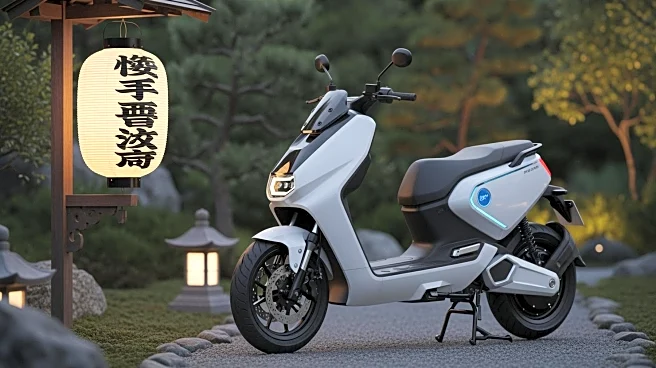What's Happening?
The Japanese government and leading auto manufacturers have expressed concerns over Vietnam's decision to ban internal combustion engine (ICE) two-wheelers in Hanoi starting mid-2026. This directive, issued
by Vietnamese Prime Minister Pham Minh Chinh, aims to reduce pollution in the capital. However, Japanese automakers, including Honda, which dominates the local market, warn that this move could lead to significant job losses and disrupt a market valued at $4.6 billion. The ban is part of Vietnam's broader strategy to transition towards cleaner energy and reduce environmental impact.
Why It's Important?
The ban on ICE two-wheelers in Hanoi is significant as it challenges the dominance of Japanese manufacturers like Honda in Vietnam's lucrative market. This decision could lead to economic repercussions, including job losses in the manufacturing sector and a shift in market dynamics. It also highlights the growing global trend towards sustainable transportation solutions, pushing automakers to innovate and adapt to new environmental regulations. The move could serve as a precedent for other cities in Vietnam and Southeast Asia, influencing regional policies on vehicle emissions.
What's Next?
As the 2026 deadline approaches, Japanese automakers may need to accelerate their transition to electric vehicles to maintain their market position in Vietnam. This could involve increased investment in local production facilities for electric two-wheelers and collaboration with Vietnamese authorities to address economic concerns. Additionally, Vietnam's government might face pressure to provide incentives or support for affected workers and industries, ensuring a smooth transition to cleaner transportation options.










